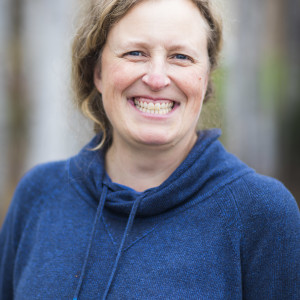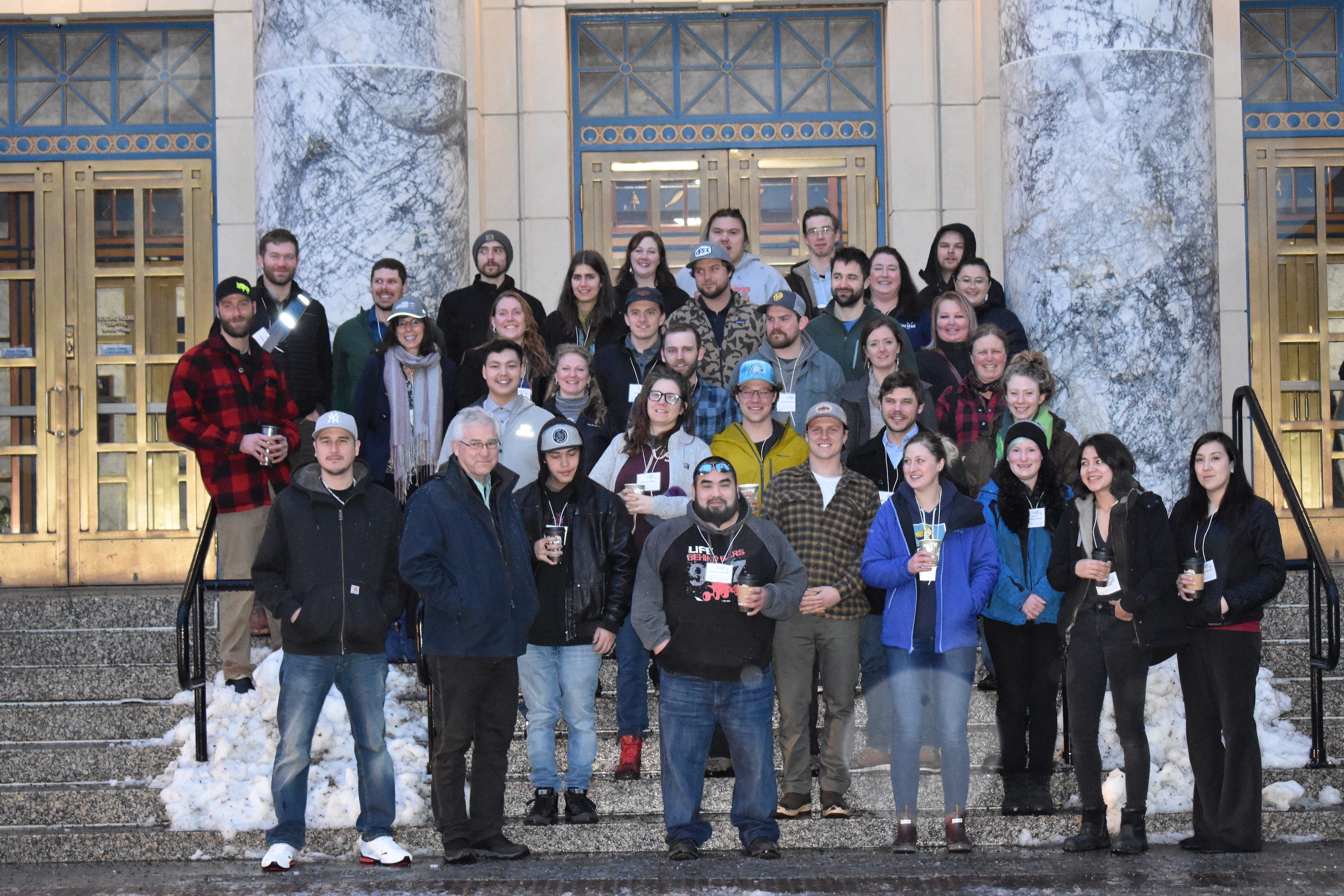What prompted the start of the Alaska Young Fishermen’s Summit?
I met up with Casey Campbell, who helped us on many of the earlier Alaska Young Fishermen’s Summit events. We started talking about younger fishermen needing to have a voice in the regulatory processes that impact their operations. So we thought about having a meeting or conference. We quickly brought Alaska Sea Grant’s Torie Baker into the discussion, who prompted us to take advantage of such a gathering by providing some training as well. Paula Cullenberg, then director of Alaska Sea Grant, suggested we get other industry members involved through sponsoring participants, but also as speakers and trainers.
We’ve kept pretty true to those three principles over the years: Prioritize networking opportunities for new fishermen, provide practical training taught by those with experience in the subject, and encourage skippers and fishing organizations to nominate and support promising upcoming fishermen to attend.
How has it changed since its inception? What parts of the program have remained the same?
We started out covering the business management aspects, understanding the global market for seafood and getting involved in the regulatory process. After just one or two summits, we added in a safety component and a bit on understanding the science and management of Alaska’s fisheries. After getting feedback about too much “seat time,” we started adding in a field trip to each event. After a few times in Anchorage, we also decided to try out Juneau, to introduce folks to the legislative process. We also changed from a two-day to a three-day event, with some optional breakout sessions. We try to make sure those sessions have something for the very new, first-year type person, as well as the more experienced fisherman.
What do first-timers hope to learn? What is one of their biggest “Aha!” moments from the conference?
We hear over and over again about how useful the financial and risk management information are for participants. We’ve had a stellar team, including lenders, a certified public accountant who also fishes, and an insurance broker to really help them get a good picture of what they need to be thinking about in terms of their business operations. We also get a lot of great comments about how nice it is for them to learn about fisheries in other parts of the state and meet up with people facing similar opportunities and challenges in other regions.
What are young fishermen concerned about?
You know, the same thing most fishermen are concerned about, I think. What is the market for my fish going to look like this year and into the future? Should I invest in a vessel upgrade or new permit now, or wait? Am I making the right decisions and taking the right precautions to decrease my risk? What ocean changes and fisheries management decisions are going to impact my operation?
What do young fishermen wish old salty dogs knew about them?
Interesting question. I’m not a young fisherman myself, so I can only speculate. But I think they’d say they aren’t looking for any extra coddling or help. They just want an opportunity to give it their best shot and test themselves against the very challenging career to see if they can succeed. I am so impressed by the participants in Alaska Young Fishermen’s Summit; they are bright and motivated and really savvy.
Where are they now? Do you have any updates on past attendees?
I mostly hear or read about past participants as testifiers at Alaska’s Board of Fisheries or North Pacific Fishery Management Council meetings or see their names pop up at other Alaska Sea Grant workshops. A group of participants from Cordova started their own Cordova Young Fishermen’s Facebook group. I see letters to the editor and articles in industry magazines from past participants as well. Some are direct marketing their fish, which is fun to see. We’ve had more than 500 people attend the eight summits we’ve put on, so there are a lot of alumni out there. As of a survey we did a few years back, only a tiny percentage have quit fishing.
What advice would you give to young fishermen looking to get a start in fishing?
I’d like to quote Lea Klingert with Alaska Commercial Fishing and Agriculture Bank, who has helped us out every year since our start in 2007: “Don’t waste your money on toys.”
Jim Hubbard, who has also been helping us for years, would say something like, “You aren’t going to have the big beautiful boat all at once; start small, make good decisions and save up until you can buy when the time is right.”
I think Torie Baker would encourage fishermen to join a fishing organization, so your voice is amplified at regulatory meetings.
Bruce Gabrys, who has sadly passed on, but was the heart and soul of our financial management training would say, “The easiest bookkeeping system can just be a Ziploc bag for all your receipts and fish tickets. Hopefully it’s bigger than a quart size.”
And my advice would be to find a mentor, a skipper you can deckhand with or an experienced fisherman who is willing to share their knowledge with you. You’d be surprised how many people are willing to talk if you are really willing to listen with humility and gratitude.

Sunny Rice has been the Alaska Sea Grant Marine Advisory agent in Petersburg for 16 years. She began her career in Alaska in 1990 working on the slime line in Valdez.







